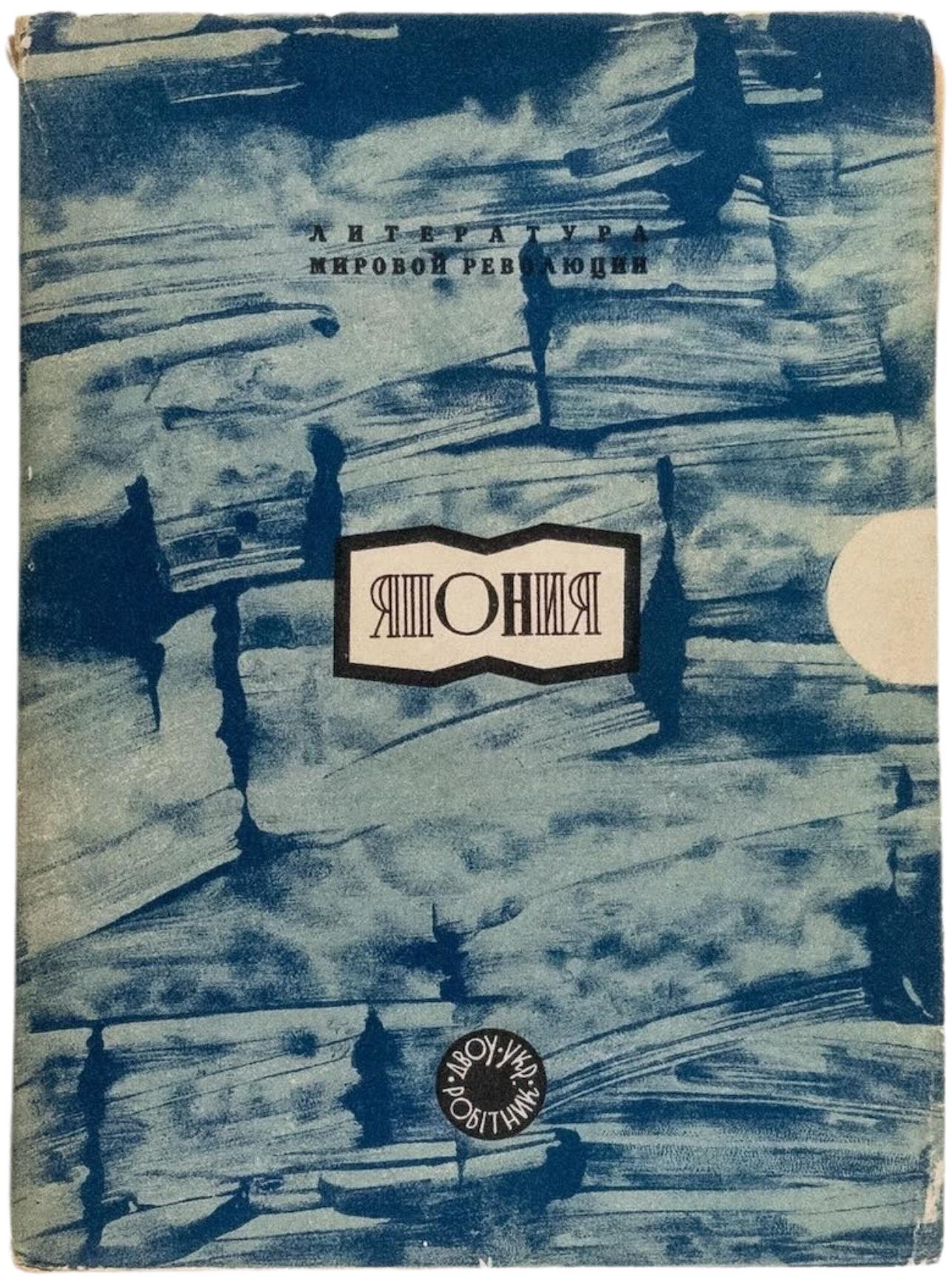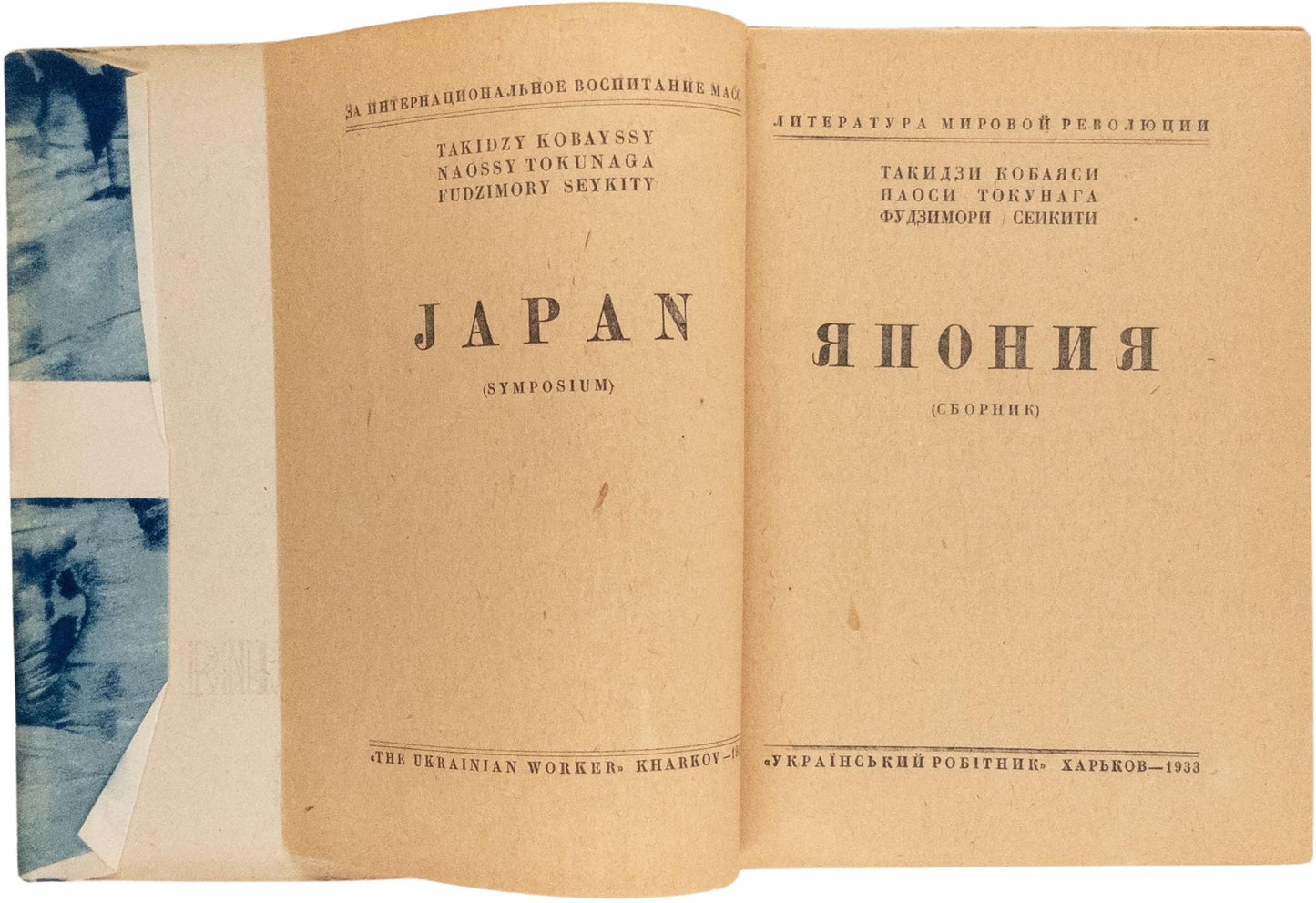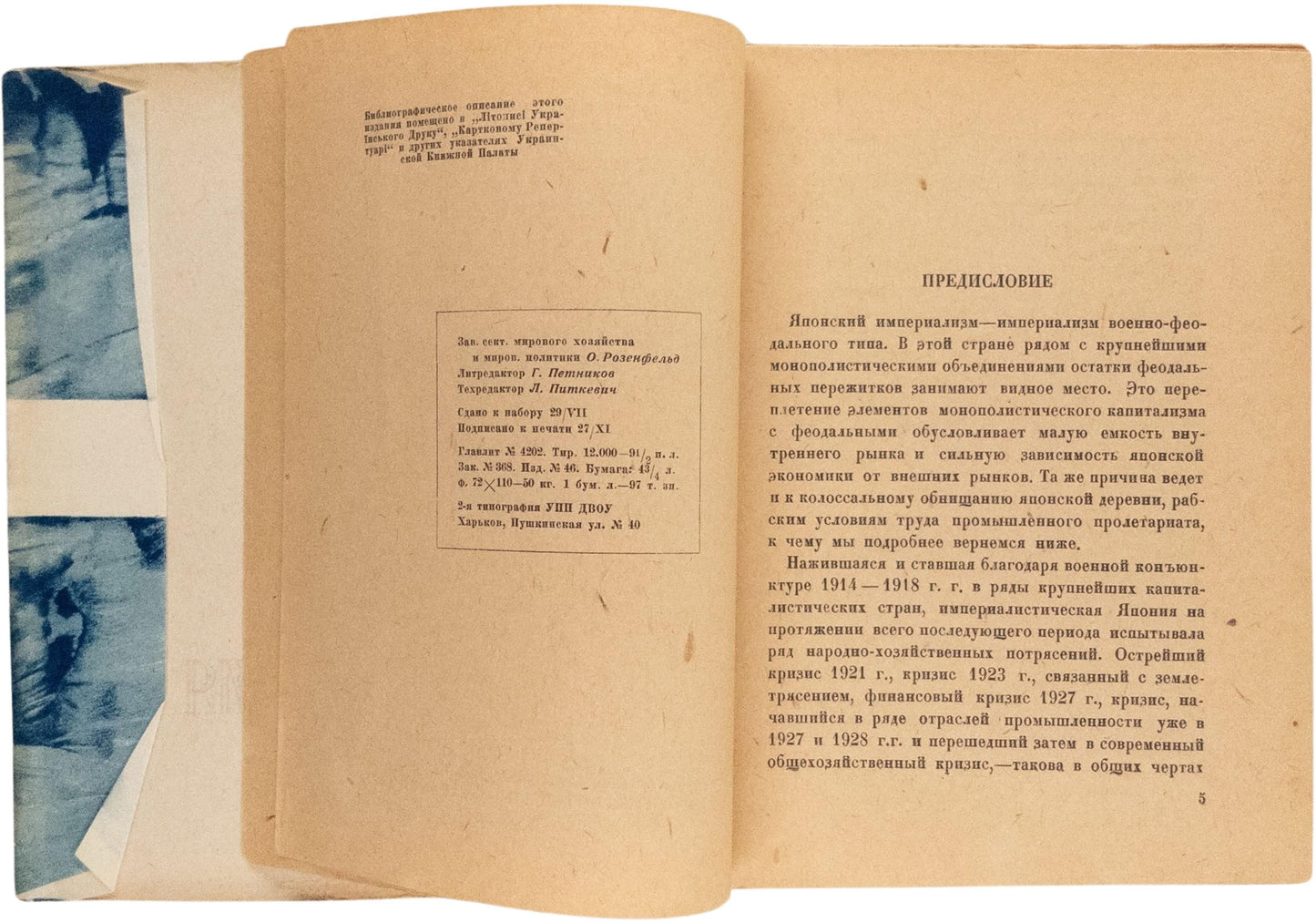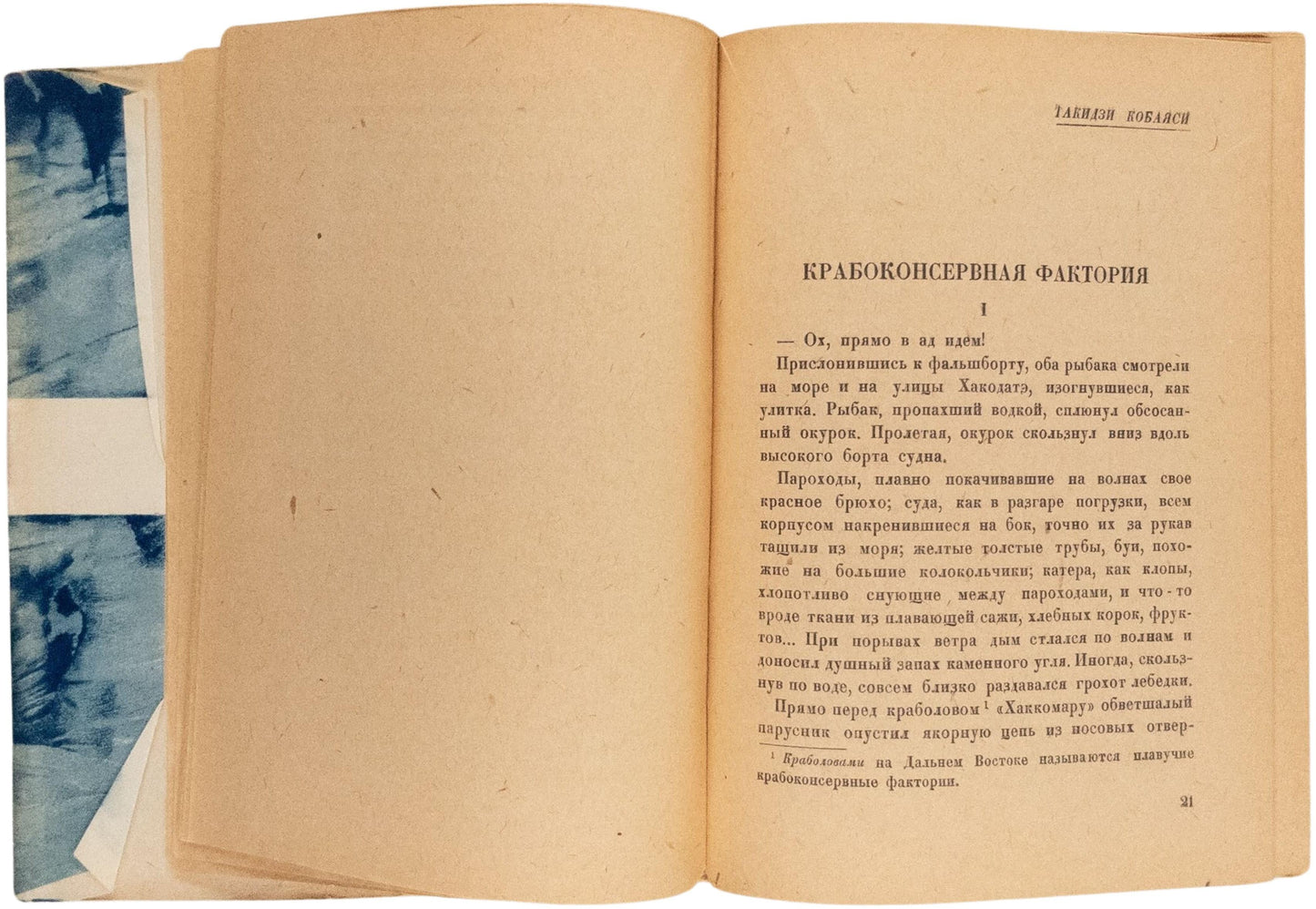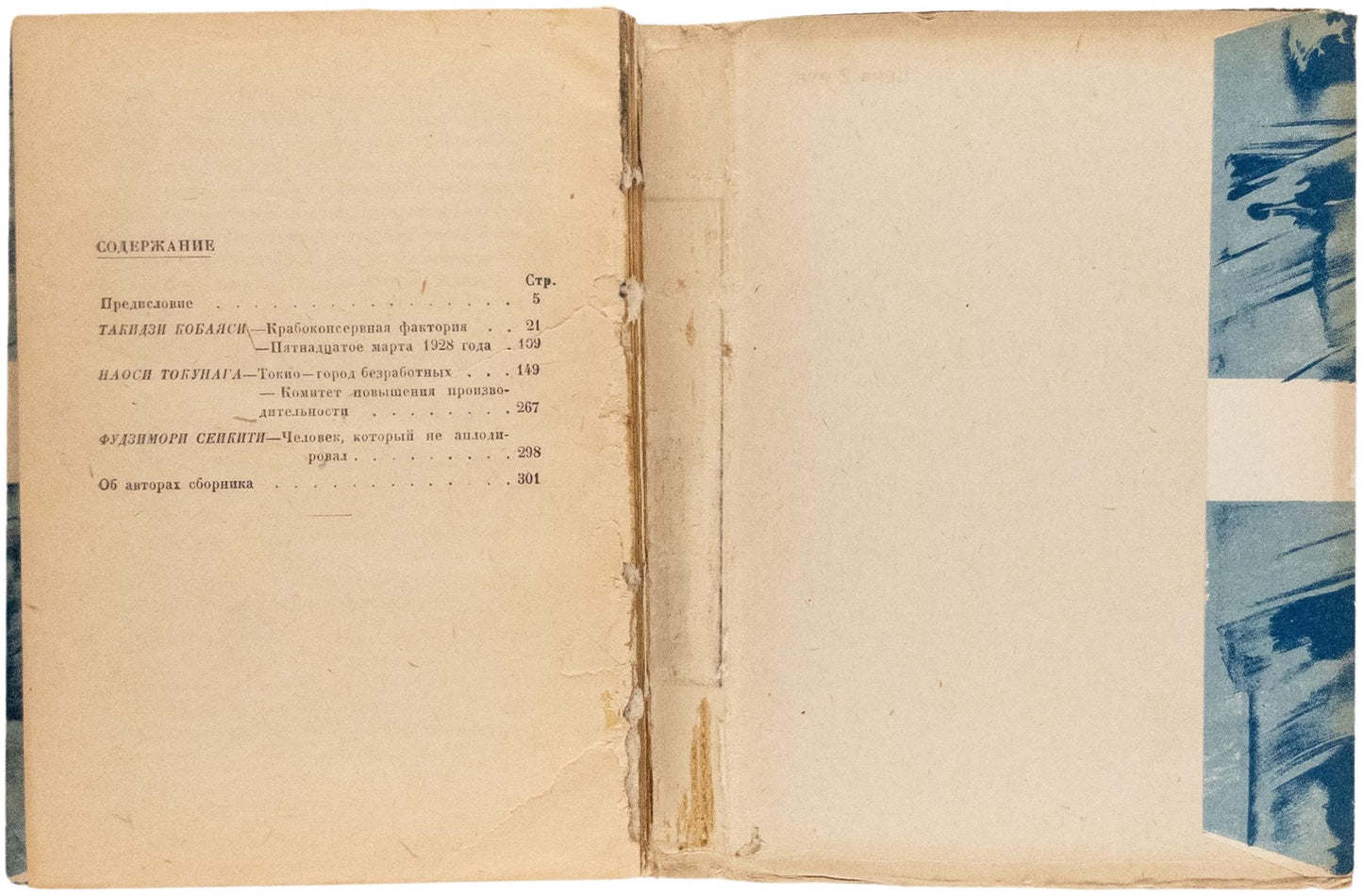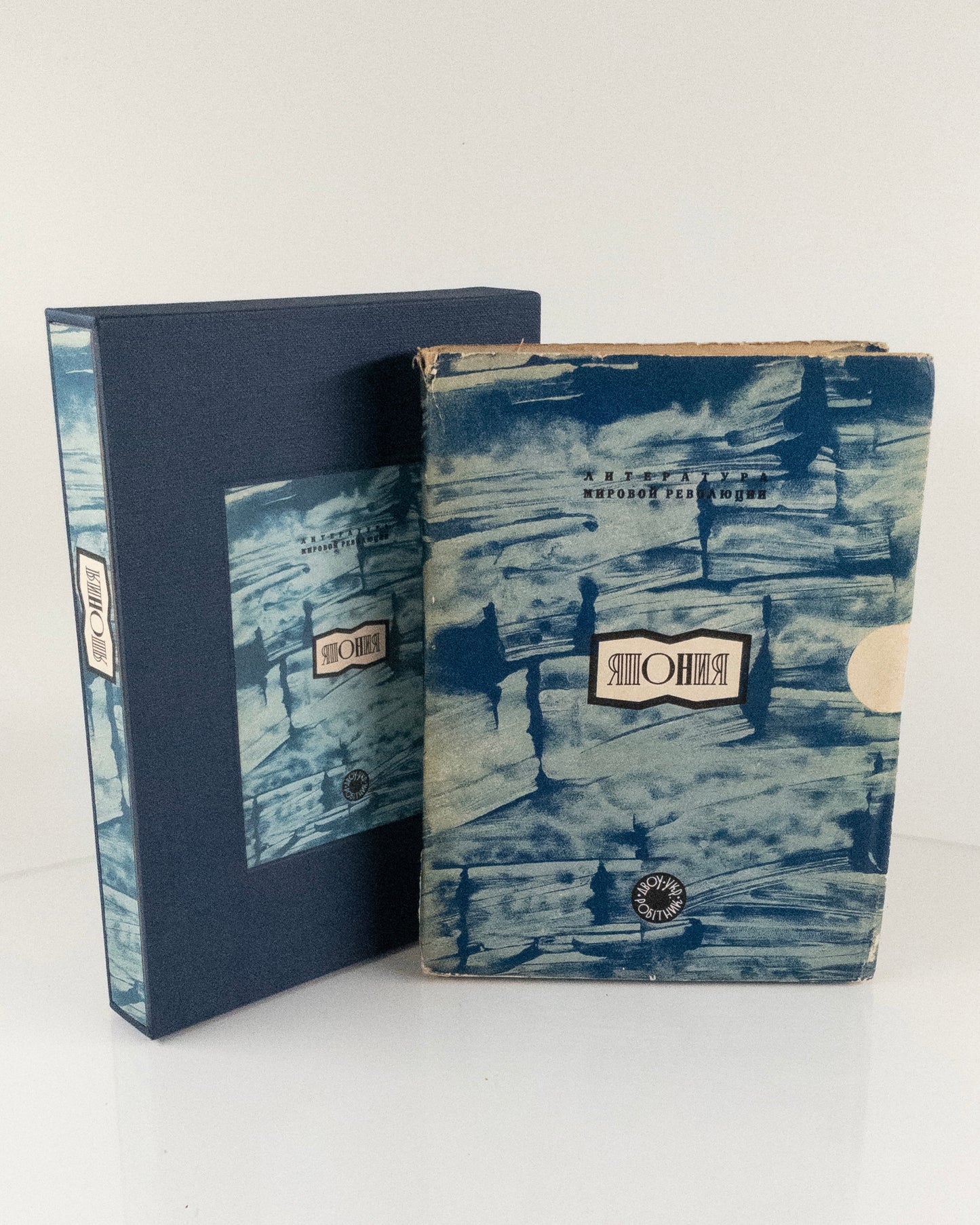Kobayashi, Takiji; Tokunaga, Naoshi [Sunao]; Fujimori, Seikichi
Japan: A Collection. Rare edition of Japanese proletarian prose in very nice design.
Japan: A Collection. Rare edition of Japanese proletarian prose in very nice design.
Couldn't load pickup availability
Kobayashi, Takiji; Tokunaga, Naoshi [Sunao]; Fujimori, Seikichi [Japan: A Collection]. Iaponiia: (Sbornik).
Series [Literature of the World Revolution] Literatura mirovoi revoliutsii.
Title in Russian and English.
Preface by I. Vladimirskii.
Kharkov, Ukrainskyi robitnyk, 1933.
8vo, 302, [2] pp.
In original illustrated stiff card wrappers, pictorial dust jacket and modern slipcase. Partly unopened.
In good condition, dj lightly rubbed with short tears and small loss to spine, wrappers detached from book block. Despite it all, a fine copy indeed.
Rare edition of Japanese proletarian prose in very nice design. One of 12 000 copies printed.
The Japanese government imposed severe repression on proletarian authors, as the Japanese Communist Party had been banned since its establishment in 1922. While not all writers were directly associated with the party, the Union of Japanese Proletarian Cultural Organizations (also known as KOPF) was, leading to widespread arrests, such as the infamous March 15 incident—a 1928 crackdown on socialists and communists by the Japanese government. Some authors were tortured to death by the police, while others were forced to renounce their socialist ideologies.
This rare collection of Russian translations of Japanese prose features works by three significant proletarian writers, often referred to as ‘Taisho workers’ literature’: Takiji Kobayashi (小林 多喜二; 1903–1933), Sunao Tokunaga (徳永 直; 1899–1958) — mistakenly called Naoshi in the book — and Seikichi Fujimori (藤森 成吉; 1892–1977), the first chairman of the All-Japan Proletarian Arts League.
The collection includes two works by Kobayashi (‘The Crab Cannery Ship’ (Kani Kōsen/蟹工船) and ‘The Fifteenth of March, 1928’ (San ichi-go jiken/三・一五事件)), two by Tokunaga (‘Tokyo: The City Without Work’ (Shitsugyō toshi Tōkyō/失業都市東京) and ‘The Efficiency Committee’ (Nōritsu iinkai/能率委員会)), and one by Fujimori (‘The Man Who Did Not Applaud’ (Hakushu shinai otoko/拍手しない男)).
It is known that Kobayashi’s 'The Cannery Boat'—his major work about the harsh lives of cannery workers, fishermen, and seamen aboard a cannery ship—was first published in Russian in the magazine 'The World Revolution Literature' (No. 2, 1932) and as a separate book in the same year. The publication of the novel included in this collection is posthumous, as Kobayashi's tragic death at the age of 29 in prison is referenced in the book. Although the translator's name is not mentioned, we can assume that this is a reissue of the first translation prepared by Nataliya Feldman (1903–1975), who also translated Matsuo Bashō, wrote important Japanese textbooks, and was the wife of the leading Soviet Japan specialist, Nikolai Konrad, who was arrested as a Japanese spy in 1938.
The preface of this book is unexpectedly more of a political and economic overview of 1930s Japan, with a wealth of data, than a preface for a collection of prose. It details the nation's military aggression and the economic crisis that echoed the global Great Depression, highlighting the hardships faced by Japanese workers and peasants. The narrative also explores the revolutionary movement, supported by the underground Japanese Communist Party. The author then introduces the anthology itself, emphasizing its role as a collection of 'revolutionary literature of Japan'. These works aim to depict the realities faced by peasants, the unemployed, and students, while also capturing the anti-war sentiments of the time.
It's likely that this collection was published by the same publishing house in Ukrainian in 1934.
We couldn’t trace any copy of this edition in the USA or European libraries via OCLC.
